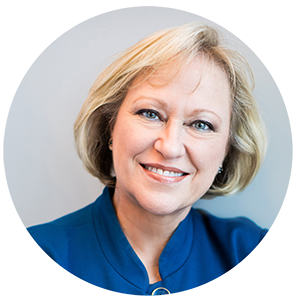by Karen K. Garza, PhD
Public education has been hard-hit by the effects of COVID-19! Disruptions in learning experienced over this past year have exacerbated learning gaps—learning loss—for too many students. This is a critically important challenge we must overcome and will require an intentional, measured response. The research on this issue is quite clear—the traditional responses to learning loss are largely ineffectual. Using standardized tests for diagnostic information doesn’t work and remediating the prior school year’s academic content only intensifies gaps in learning. Further, simply extending learning time with low-level tasks does not work, both academically and emotionally.
If districts focus too much on remediating learning loss—holding kids back a grade level, categorizing students according to their deficits, and centering lesson plans on catch-up work—the students who have experienced the most trauma and disconnection during the pandemic may be assigned to the lowest level and most stigmatized groups. They will be viewed as deficient, and the inequities in place before and during the pandemic will be further amplified (Berger, 2021).
Education leaders are looking to make the right decisions for their students in response to the past year’s unique, rapidly changing circumstances. But, the traditional responses to learning gaps will not adequately or appropriately serve our students in this moment. We must now design new ways to address these new challenges—presenting an opportunity to address another gap in learning that is often not considered but is even more concerning. This is the gap in equipping all young people with rigorous content knowledge and 21st century success skills—deeper learning—a pre-requisite for a successful, fulfilling life. Are all students being prepared to navigate our complex world—a world that has become even more complex and uncertain this past year?
In recent years, well-meaning efforts to close the achievement gap have sometimes unintentionally exacerbated this divide, as disadvantaged students who are in danger of failing state tests get increasing amounts of test prep and a narrowing of the curriculum, whereas more advantaged students get a more varied and stimulating curriculum (Mehta & Fine, 2019).
The research is clear on this point—content knowledge is important, but alone it is insufficient to equip young people to respond to unique, complex challenges in both their work and personal lives. Further, the research also reveals the powerful intersection between deeper learning and how the brain functions.
Student-centered, inquiry-based experiences are better able than rote instruction to support the learning and understanding of diverse groups of students, especially those bearing the burdens of increasing poverty and social inequality. We must create learning opportunities that reflect the growing, research-based understanding of how people learn (Darling-Hammond & Oakes, 2019).
The experiences from this past year have demonstrated that education systems can pivot and adapt much faster than we had previously imagined. Further, we are beginning to observe promising signs that the broader community has a renewed sense of appreciation for educators. Community members are now joining educators in questioning the value of outdated customs that have prevailed in education policy, such as the pronounced focus on standardized test results. So, as we emerge from this moment in time, we are presented with a unique opportunity to leverage these lessons learned and lean into a new vision of education—one that is learner-centered and that produces equitable, 21st century outcomes for all students.
Our young people deserve an education that prepares them for success in this ever-changing world. They deserve experiences that teach them how to be learners, critical thinkers, innovators, and creative problem solvers through collaborating and communicating with others. They deserve the opportunity to develop the skills and mindsets that will enable them to succeed in a workplace where over half the jobs they will hold during their career don’t yet exist. But, most importantly, we must fully prepare all students to thrive as citizens of this world.
As we consider how best to address gaps in learning, we need to completely reimagine our education systems. This process of transformation begins with leaders engaging their communities in conversation around the following questions.
- What knowledge, skills, and mindsets do students need in this rapidly changing world?
- What new supports do educators need to be well-equipped to design and deliver deeper learning experiences that purposely integrate rigorous academic content and 21st century skills and mindsets?
- What adaptations are needed to establish the aligned, district-wide conditions, processes, and practices that will produce equitable and enduring 21st century outcomes for every student?
“Changing everything might sound daunting, but it also means that there are many places to start, infinite opportunities to collaborate, and endless imaginative interventions and experiments to create.” (Mariame Kaba)
So, how will you respond and lead in this moment? What will be your school system’s response to the unique needs of struggling learners, students in poverty, and other historically marginalized students? Some will choose to double down on the failed responses of the past, including purchasing resources that claim to remediate learning loss, focused on a narrow, antiquated definition of success. However, we have an opportunity to reimagine a responsive model of education for our students’ needs today—particularly our most at-risk students.
This moment in time offers two roads to the future—one where we address the gaps in learning with more of the same low-level, uninspired responses or one where we leverage this opportunity to reimagine our educational systems and design new responses that provide all students with 21st century, deeper learning experiences that create lifelong learners and contributors. Let’s double down on closing the gaps that matter!
Start this process of education transformation today. There is no better time than now.
“Just get in motion—make your first move.”
–Michael McCormick, Superintendent, Val Verde Unified School District, CA; Chair, EdLeader21 Network

By Karen K. Garza, PhD
President & CEO, Battelle for Kids
Responding to learning loss? We can help, contact Jeff at jeff@battelleforkids.org to learn how.
You may also like:
